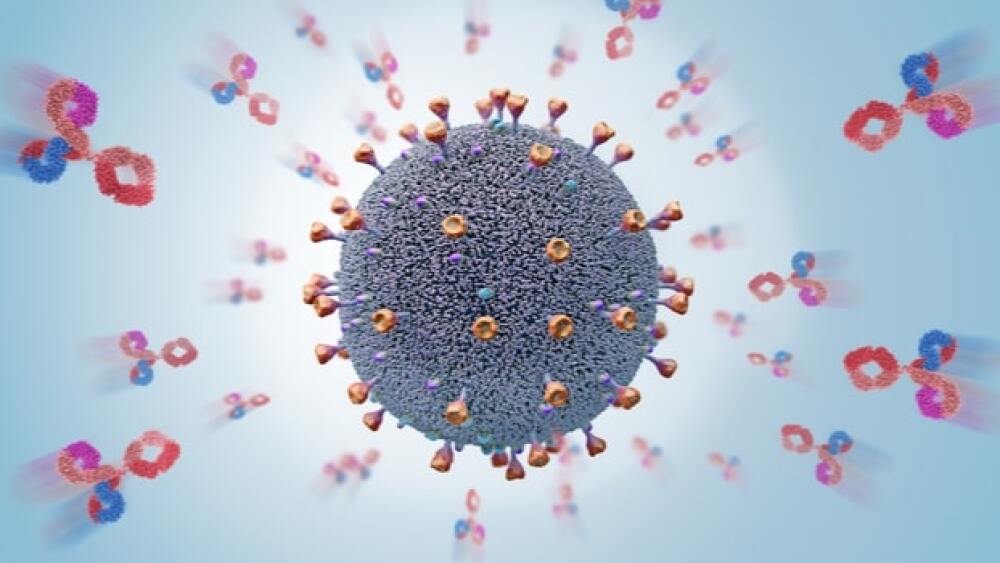A bispecific antibody discovered by Twist Bioscience and licensed to Revelar Biotherapeutics neutralizes both the Omicron and Delta variants of SARS-CoV-2 in studies with the live virus.
Bethesda, Md.-based Revelar Biotherapeutics and Twist Bioscience from South San Francisco announced their bispecific antibody, RBT-0813, neutralizes both the Omicron and Delta variants of SARS-CoV-2 in studies with the live virus. The therapeutic is a bispecific antibody discovered by Twist and licensed to Revelar, targeting specific parts of the SARS-CoV-2 spike protein.
Revelar hopes to have enough data in the first half of this year to submit an Investigational New Drug (IND) application to the U.S. Food and Drug Administration (FDA). The data was published on BioRxiv, but has yet to be peer-reviewed, although a peer-review publication is planned for early this year.
“We conducted studies demonstrating that RBT-0813 neutralized the Omicron and Delta variants at the concentrations tested,” said Akiko Iwasaki, Waldemar Von Zedtwitz Professor of Immunobiology and Molecular, Cellular and Development Biology at Yale University and Investigator, Howard Hughes Medical Institute.
RBT-0813 binds to the receptor-binding domain (RBD) and also outside of the RBM (receptor-binding motif) of the spike protein. The companies theorize this makes it less likely to escape mutations, which are typically in the RBM of the spike protein.
This is likely good news. As Omicron surges worldwide, it appears to partially evade immunity caused by vaccinations and fully evade some therapeutic antibodies. Two studies from the University College Oxford, U.K., and Washington University School of Michigan in St. Louis in late December 2021 found that AstraZeneca’s EVUSHELD antibody therapy was effective against Omicron. It is a long-acting antibody combination of tixagevimab and cilgavimab. Studies have also said that sotrovimab, by Vir Biotechnology and GlaxoSmithKline, and DXP-604, under development by Beijing-based BeiGene and Singlomics, are effective against Omicron.
The two most common antibody therapies used, by Eli Lilly and Regeneron, appear to be much less effective against the Omicron variant. Adding to the complications in treatment in the U.S. is that sequencing the viruses for Delta or Omicron is not that common. Patients at high risk of severe disease infected with Delta would benefit from the Lilly and Regeneron antibody therapies. Hospitals and health systems do not routinely test for specific viral strains. The supply of Vir-GSK’s sotrovimab is in short supply, although it is expected to improve this week. U.S. health officials have recommended that health-care providers continue to use the Lilly and Regeneron products for “eligible outpatients at highest risk who are either: diagnosed with a test that may identify a potential case of the Omicron variant (e.g., by S gene Target Failure in the ThermoFisher TaqPath assay); or are present in local settings where reported prevalence of Micron is greater than 20%.”
According to The New York Times, there is no approved assay to test each individual’s variant. State and private laboratory networks use genome-sequencing tests to track variants in communities, and health systems use those as regional estimates to decide which antibody treatments to use.
Of the most recent data out of Twist and Revelar, Glenn Marina, Chief Executive Officer of Revelar, said, “With this data, we have now confirmed that RBT-0813 binds to and neutralizes both the Delta and Omicron variants of concern in preclinical laboratory testing. We are working diligently to complete preclinical and CMC development to support an IND and the initiation of clinical studies in humans. In parallel, we are in discussions with the U.S. Food and Drug Administration and expect to submit our IND in 1H2022.”





